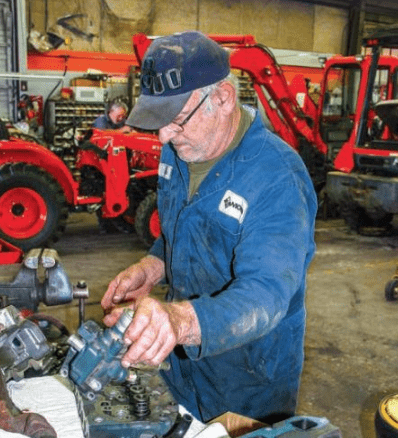
Share On Social
Right-To-Repair Law Passes, Automakers File Federal Suit
While the Right-to-Repair legislation that passed in Massachusetts during the November election targeted the automotive industry, the same principle now applies to all equipment-servicing facilities in the state. For example, when customers buy a piece of equipment (or car) they also buy complete access to the data streams that are generated during technical and diagnostic procedures as part of a service job. The new Massachusetts law—which passed with 75% approval from voters—requires manufacturers to equip vehicles with standardized open data software platforms by 2022.
The legislation also states that a standardized open data platform has to give vehicle owners and independent repair facilities direct access and the ability to retrieve mechanical data and run diagnostics through a mobile-based application.
Massachusetts voters had already passed landmark right-to-repair legislation in 2012 that required automakers to use a nonproprietary plug-in to access a machine’s onboard diagnostic port so third-party vendors could repair or service it, but that law had specifically exempted data that was transmitted wirelessly.
Automakers’ Response
Within weeks of the November election, automakers filed suit in a U.S. District Court in Massachusetts, primarily claiming that the law’s short timeline is impossible to meet when vehicle development cycles run three to five years.
Now, major automakers allege in a federal lawsuit filed after the election that the revised law poses cybersecurity and vehicle safety risks and the short timeline sets an “impossible task” for compliance.
The Alliance for Automotive Innovation — which represents General Motors, Ford, Toyota, Volkswagen and other automakers —filed the suit Nov. 20 in U.S. District Court for the District of Massachusetts, requesting that the court find the law “unenforceable because it is unconstitutional” and conflicts with federal laws.
Automakers are right to be concerned. Despite its relatively small size, Massachusetts’ requirement passed in 2012 requiring standard plug-ins to data ports was soon extended to cars nationwide, and the industry doesn’t want to see the same thing happen with data platforms.
On the face of it, the issue seems clear-cut: I bought it, I own it, and I need access to all hardware and software to repair it.
Manufacturers counter that consumers already have or can find all the information and equipment they need to handle all standard repairs and maintenance—but complete access that includes the ability to modify software settings poses serious safety, security and environmental risks.
OPEI’s Take On The Issue
According to the Outdoor Power Equipment Institute (OPEI), state legislation on the issue, in Massachusetts and in other states where similar laws have been proposed, is too broad and mixes the more acceptable right-to-repair with the unacceptable “right to modify.”
OPEI, as part of a coalition of suppliers, OEMs and groups including multiple dealer associations, has made its position clear in a statement of principles.
This includes a commitment from OPEI members to provide end users with increased resources by 2023 that include fleet management information, electronic field diagnostic tools and all related information and materials.
However, OPEI and its members draw the line at allowing third parties to alter or reset security features such as immobilizer systems, reprogram engine control units, change any settings related to emissions or safety compliance or access any embedded software or code.
Related Articles
Latest News
OPPAA Hosts Annual Meeting
The Outdoor Power Parts & Accessories Assn. (OPPAA) offered ample networking amongst...
Kioti Tractor Hosts Annual Dealer Meeting
Kioti Tractor celebrated another successful year during its annual Dealer Meeting, held Nov. 12-14 in Raleigh, N.C. The three-day event featured a robust agenda, including informative keynote…
Propane Council Releases New Safety Guide
The Propane Education & Research Council (PERC) released a new safety guide, “Propane Safety for Commercial Mowers” ahead of upcoming preparation for mowing season. Businesses that have…
NEDA Elects Bryan Messick President Of Board
Bryan Messick of Messick’s Inc. of Mount Joy, Penn. was elected to a one-year term as President of the Northeast Equipment Dealers Assn. (NEDA). Messick is a dealer principal with Messick’s…
Grasshopper Distributor Forms Partnership For Floor Plan Financing Program
Vero Technologies Inc., a provider of bespoke floor plan financing programs, has entered into a partnership with The Harnack Co., one of the largest distributors of the Grasshopper brand….
Power Distributors Supports National FFA Convention, Expo
Power Distributors, a national distributor of power equipment, engines, and parts, recently exhibited at the 2023 National Future Farmers of America (FFA) Convention and Expo in Indianapolis,…



